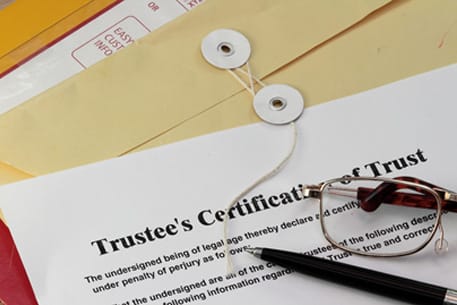The Most Common Mistakes People Make When Creating a Trust
On behalf of John J. Pembroke & Associates LLC posted in trusts on Monday, December 3, 2018.
The Most Common Mistakes People Make When Creating a Trust
One of the smartest ways to pass your assets down to your loved ones is by creating a trust. By creating a trust, you can avoid many of the probate costs and delay to which assets are typically subjected.
However, while trusts have a number of different benefits, they’re not all the same, and sometimes you get what you pay for. Often times, when individuals open trusts, they make mistakes that can negatively impact their respective estates.
How can you avoid these mistakes? By knowing what some mistakes are in the first place. Here are the most common mistakes people make when creating a trust.

One of the most common mistakes people make when creating a trust is creating the wrong type of trust in the first place. a number of different types of trusts available to you, from revocable trusts, to irrevocable trusts, land trusts in Illinois, to charitable trusts, and many more.
Each different type of trust possesses different characteristics, and is best used for specific purposes. Choosing the wrong type of trust can result in negative, unplanned outcomes, including on trust control, taxes, access to your assets and more.
For this reason, when opening a trust, it’s highly recommended that you speak with an estate lawyer. He or she will be able to guide you through different types of trusts, helping you to create one that suits your purposes well.
Another commonly made mistake is naming a trustee who can’t live up to the important responsibilities reserved for a trustee. A trustee is expected to control the assets within a trust, acting solely on behalf of the trust’s beneficiaries. He or she ultimately decides not only who will receive the assets in the trust, but can sometimes decide how much of these assets each person will receive.
For this reason, when choosing a trustee, it’s wise to choose someone who will act in your heirs’ best interest. This can be very difficult to do, even if you have close friends or relatives. After all, you never know for sure who will act wisely with your money, and meet the needs of you and your family.
If you are choosing a trustee, you should speak with an estate’s attorney. He or she will be able to help you come to a decision after consideration of all of the factors affecting your choice.
It’s important to understand that, after you’ve opened a trust, you’ll have to continue to fund that trust in order for it to accomplish your objectives. Many individuals who open trusts fail to fund them adequately, wasting time and essentially rendering their trusts ineffective, particularly for avoiding Probate, which is a principal purpose of having a trust.
In most cases, it’s wise to work with an attorney to help you fund and then administer your trust on a consistent basis. An attorney can help you to take care of important paperwork and ensure that you’re doing everything properly.
While you can certainly open and manage a trust on your own, that approach is generally not recommended. Taking care of a trust is an important responsibility – one which requires a great deal of legal and financial knowledge.
While your choice of Trustee may be good for accomplishing your objectives, he or she may not possess all of the knowledge necessary to adequately manage a trust. If you or your trustee are at all unsure of the trust process, you should consult with an estate lawyer.
Are you thinking about opening a trust? Need help managing it? If so, you should turn to an experienced Glenview estate lawyer.
Looking for such a lawyer? You’ve found it right here with the experts at John J. Pembroke & Associates.
Contact us today to schedule an appointment!











